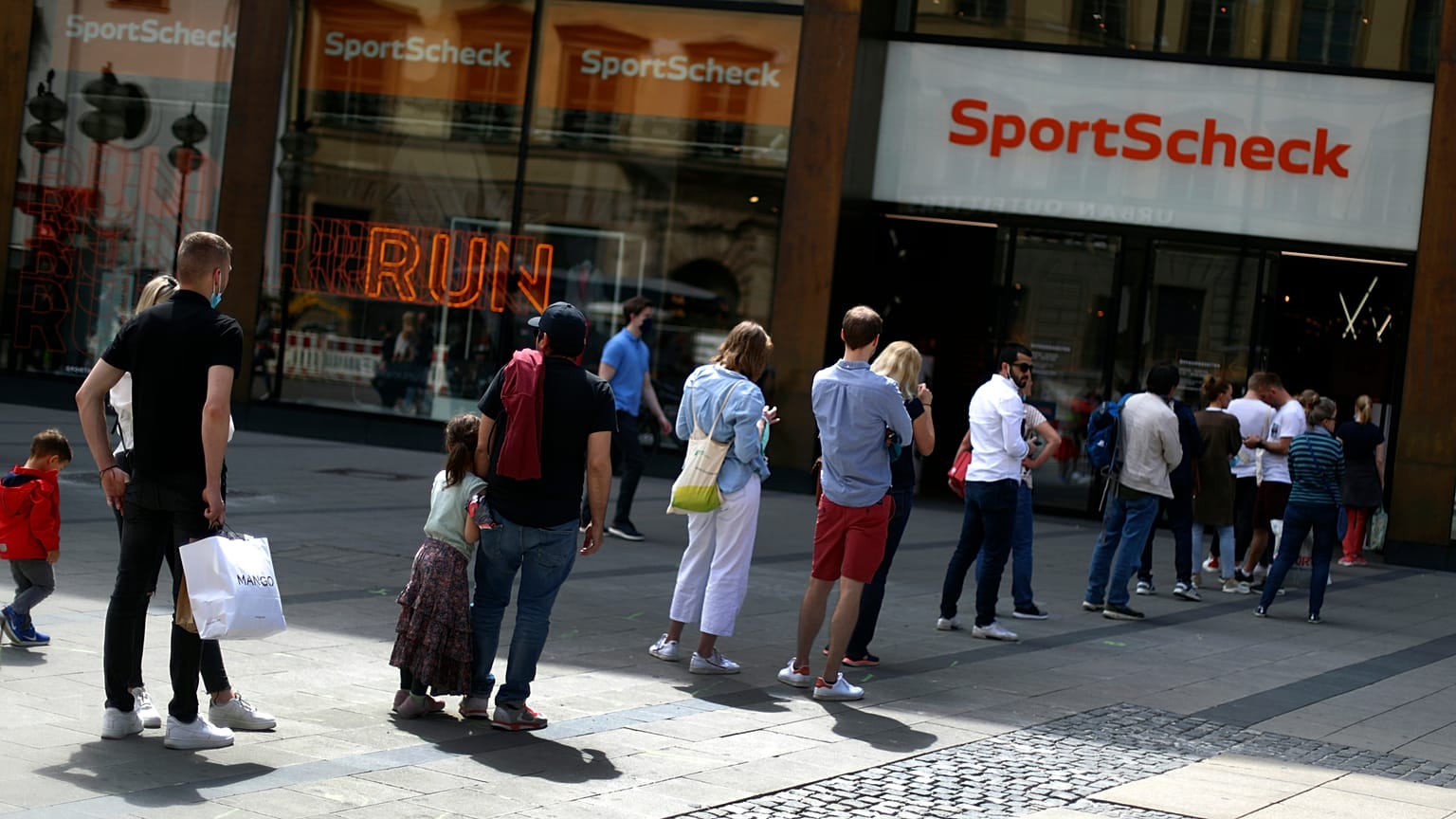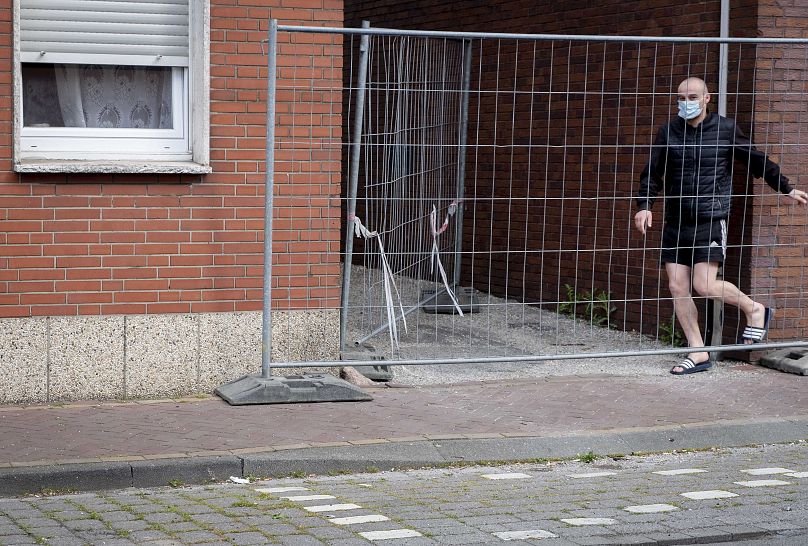The reproduction number (or R-value) describes how many people a person with coronavirus will infect on average.
The coronavirus reproduction number has been slightly above one since Saturday, said Professor Lars Schaade at Germany's public health body, the Robert Koch Institute (RKI).
The reproduction number (or R-value) describes how many people a person with coronavirus will infect on average.
When the R-value is above one, you risk an exponential increase in cases.
At a press conference, the German public health body RKI said that the number of cases in Germany is slowly decreasing, so individual outbreaks will have a greater influence on the R-number.
There are new clusters in Germany linked to slaughterhouses in particular.
The fact that the R-value has been above 1 for a short time was not too worrying, the RKI said.
The number of new daily infections, the severity of illness and the number of tests carried out are all important as well.
If R stays above one for a longer time period and reaches 1.1, they would need to investigate further as it could indicate a new wave of infections.
There are currently 170,508 confirmed cases in Germany, including 933 new cases. There have been 7,661 deaths in the country. The percentage of people who have died is currently at 4.4 per cent.
Germany has been largely praised for its response to the pandemic, with a much lower death toll than many other large European countries.
Yet many countries in Europe are preparing for a second wave of coronavirus infections as lockdown restrictions are eased.
South Korea, another country that has been seen as handling the crisis well, has reported new clusters of coronavirus cases linked to nightclubs in Seoul, after largely containing their outbreak.
















